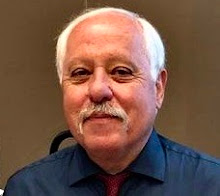Our musical universe expanded very little when our father returned from his remote teaching assignments in various and sundry corners of Oregon for a job a teacher and coach at Evergreen High School. Not exactly a music aficionado, his tastes veered toward Montovani and the Ray Conniff Singers. That all changed radically in with The Beatles.
After moving into the family home in 1961, our father purchased a console stereo system, a maple credenza outfitted with radio, turntable and quality speakers. Later, Robert and i received a small, toy-like turntable for kids that played 45s. We immediately stocked up on Beatles records, beginning with "I Want To Hold Your Hand."
Soon, other bands that constituted the "British Invasion" arrived on the scene: The Yardbirds, The Kinks, Cream, The Rolling Stones and The Who. At the same time, American bands like The Beach Boys and Creedence Clearwater Revival caught our attention. Creedence, in particular, popularized the long-form guitar solo with their rendition of "Suzie Q."
Although other rock and roll bands, especially The Rolling Stones, were becoming increasingly popular, The Beatles were the clear leader, arguably the most successful act of the 20th century, contributing to music, film, literature, art and fashion. impacting popular culture and lifestyle. As their hair grew longer, so did the follicles of young men everywhere.
When the Beatles broke up in 1970, the natural successor was The Rolling Stones, their chief rival. We saw the Stones in Seattle in 1972 in a spectacular show that also also featured Stevie Wonder. The Stones, who pioneered the gritty, rhythmically driven sound that came to define hard rock, had clearly moved to to the front of the line.
Yet for Robert and me, another English band would supplant The Rolling Stones (above) at the top of our list: The Who. Lead guitarist/chief songwriter Pete Townshend fashioned the rock opera "Tommy" in 1969 and followed that with perhaps the best live album ever recorded: "Live at Leeds." The Who would remain at the top of our lists for many years.
Other English rock and roll bands that soon caught our attention (or at least the ones we gravitated to) included Cream, Pink Floyd (below), The Moody Blues, The Kinks, The Yardbirds, The Spencer Davis Group, Small Faces and the Animals. We considered the others, like Herman's Hermits, as either forgettable or one-hit wonders.
In those days, radio was our source for new music, and the popular American bands that we enjoyed were The Beach Boys, The Byrds, Buffalo Springfield, Grateful Dead, Santana, Steve Miller Band, Jefferson Airplane, Janis Joplin, Quicksilver Messenger Service, Velvet Underground, and from among the first of the supergroups, Crosby Stills, Nash and Young.
In 1968, we discovered KINK-FM, a fresh Portland radio station with a diverse playlist including rock, acoustic, jazz, folk, pop, blues, reggae and new age. As a result, our musical tastes expanded widely, especially when it came to jazz musicians, like Charlie Parker, John Coltrane and Miles Davis, and blues musicians like B.B. King and John Lee Hooker.
Over the years, our tastes expanded to include many more genres of music including classical and international, especially as Robert furthered his career in cinema studies, and we would discuss movie soundtracks often. The only genre we avoided was country-western, with the exception of Johnny Cash, Willie Nelson and Emmylou Harris.
But one of Robert's favorites remained Frank Zappa and the Mothers of Invention, an American band from California whose work focused on the use of sonic experimentation, innovative album art and elaborate live shows. Legend has it that Robert's most famous brush with celebrity was when he rode along with Zappa to Joe's Garage for a promotional shoot.







